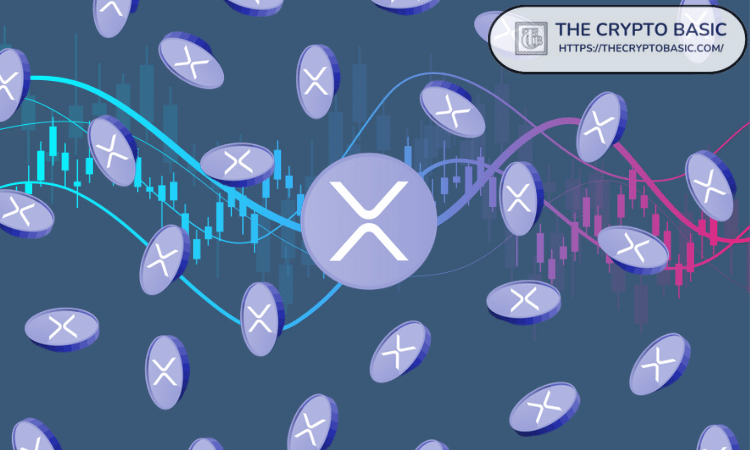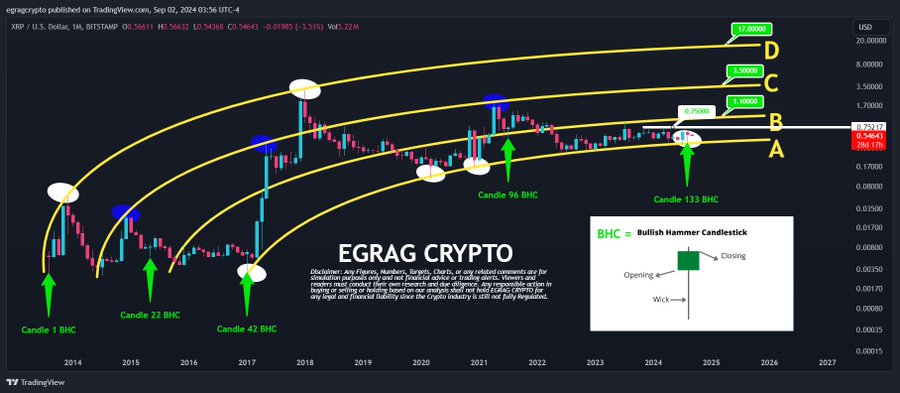Market analyst EGRAG identified a pattern on the XRP monthly chart that he believes could signal a major price breakout.
Central to this analysis is the appearance of a “Bullish Hammer Candlestick” (BHC), which EGRAG has highlighted at key points in XRP’s history. He calls the latest instance of this pattern “Candle 133” and suggests it could push XRP’s price to new heights.
XRP’s Hammer Candlesticks
Notably, EGRAG centered his analysis on BHCs, typically indicating bullish reversal patterns. These candlesticks often form at the end of a downtrend, indicating that the market is rejecting lower prices and that a potential reversal to the upside could be on the horizon.
EGRAG identified four previous instances of these patterns throughout XRP’s historical price action, where the formation of a BHC preceded significant price increases. He termed these Candles 1, 22, 42, and 96.
Candle 1, the first BHC on XRP’s monthly chart, was followed by a 750% price increase. Candle 22 resulted in a more modest 40% rise, while Candle 42, the most explosive of them all, led to a jaw-dropping 43,000% surge, which led to the $3.31 all-time high in January 2018.
Meanwhile, Candle 96 saw an 80% gain, resulting in the $1.96 high in April 2021. Now, with Candle 133 having recently formed, EGRAG and many within the XRP community believe history could repeat itself.
XRP Bent Fork Sets $17 High
The market analyst also called attention to the “Bent Fork,” a structure he believes could bolster XRP’s bullish outlook. According to EGRAG, the Bent Fork indicates that XRP’s next major resistance level is around $17.
Achieving this target would represent a 2,400% increase from current prices. However, EGRAG also suggests the possibility of XRP climbing even higher, with a potential peak at $27—a staggering 5,000% gain from its current levels.
In response to EGRAG’s disclosure, one investor expressed that while $17 or $27 would be incredible, he would be content if XRP could break the $1 barrier and potentially reach $4-5.
However, EGRAG maintained its bullish stance. He revealed that his own profit-taking strategy involves selling some of his holdings if XRP reaches $5. This approach is rooted in the principle of dollar-cost averaging (DCA), a strategy where an investor spread out their investments over time to mitigate the impact of volatility.
During the last market cycle, he sold XRP at $1.90 but re-entered at $1, expecting a rally to $5-7 that never materialized. This experience taught him the risks of rotating profits within the same asset class during volatile periods, leading him to now prefer rotating between different cryptocurrencies.
DisClamier: This content is informational and should not be considered financial advice. The views expressed in this article may include the author's personal opinions and do not reflect The Crypto Basic opinion. Readers are encouraged to do thorough research before making any investment decisions. The Crypto Basic is not responsible for any financial losses.




